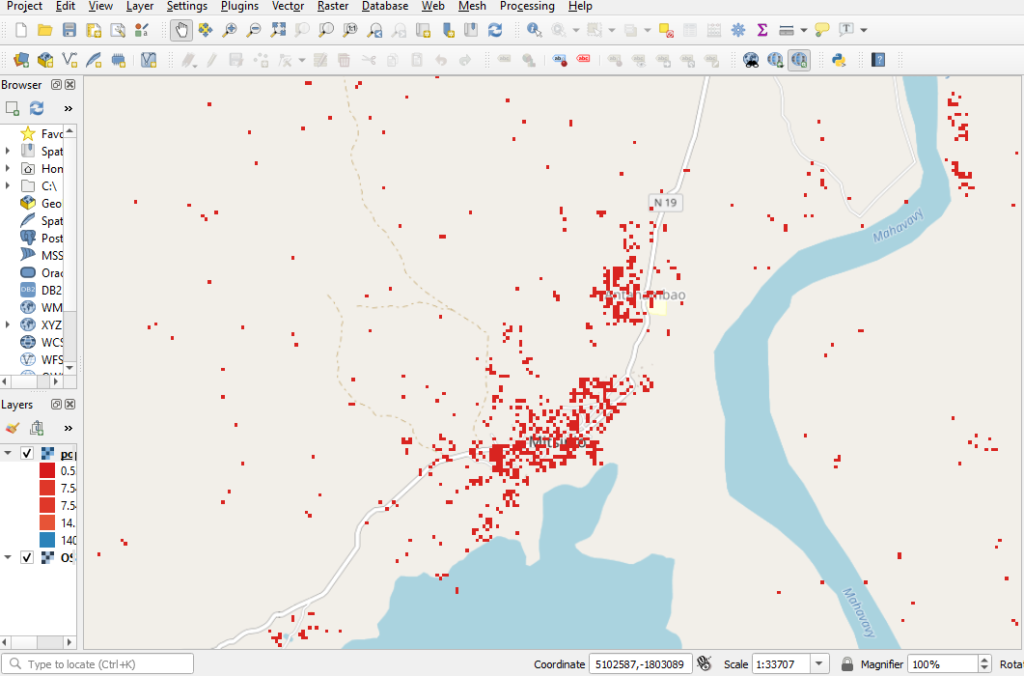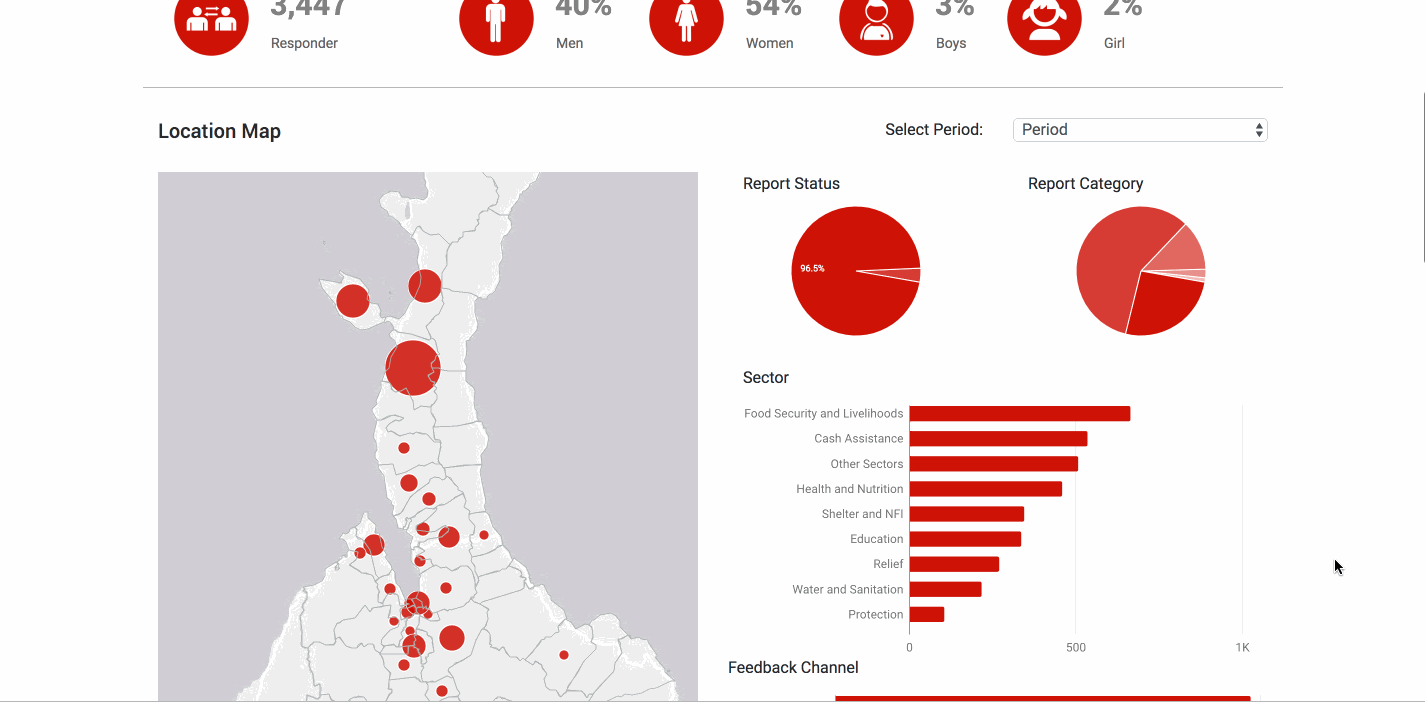Share
Throughout 2019, the Humanitarian Data Exchange (HDX) was accessed by more than 600,000 people from around the world. During that same period, we welcomed 41 new organisations to the platform. Together, these new organisations have shared about 290 datasets. The most popular data includes the High Resolution Population Density Maps contributed by Facebook, followed by the Mozambique Cyclone Idai 3W/4W contributed by OCHA. Below, I take a closer look at the data these new organisations shared with our community.
Facebook, through its Data for Good programme, is sharing population density maps and demographic estimates for 190 countries. Facebook’s spatial computing team trains pattern-recognizing algorithms to identify buildings and populated places in commercially available satellite imagery. These insights are then combined with census data and other publicly available population statistics to generate population estimates. Since they joined HDX in April 2019, Facebook’s data has been downloaded 70,000 times. The Global High Resolution Population Density Maps has been downloaded 6,200 times, followed by Peru: High Resolution Population Density Maps + Demographic Estimates (2,700 downloads); and Mexico: High Resolution Population Density Maps + Demographic Estimates (2,200 downloads). Explore these datasets here.

The Cox’s Bazar Education Sector undertakes data collection and analysis related to students, teachers, education systems, and education outcomes in Cox’s Bazar. They have shared datasets related to education partners location, school enrollment rates, education facilities damage reports, and learning centres affected by road closures. Explore these datasets and an interactive visualization of education facility locations here.
The Community Engagement Working Group Central Sulawesi Response collects sector-based feedback and coordinates collective action on issues relating to information sharing and community feedback. The group shares and maintains a dataset from communities in Central Sulawesi. Explore this dataset and the interactive data visualization that the HDX team developed here.
Humanity & Inclusion / Handicap International shares datasets of surveys about access to humanitarian services for persons with disabilities and vulnerable populations. Note that because of the sensitive nature of this data, some datasets they share are only available by request. Explore these datasets here.
The WHO Burkina Faso Office shares weekly data from the country’s Ministry of Health on diseases with epidemic potential in Burkina Faso. You can access the machine-readable spreadsheets here.
Through our partnership with the Education Above All Foundation, we have been focused on increasing access to education data. As part of our outreach efforts, we welcomed the Middle East Education Research Training and Support group to HDX. They undertake data collection related to students, teachers, education systems, and education outcomes in the Middle East. They shared data related to who’s-doing-what-where in Iraq and the Whole of Syria. We also welcomed the Accelerated Education Working Group, which includes UNHCR, UNICEF, UNESCO, NRC, the Education Development Centre, Plan International, Save the Children and War Child Holland. The group shared survey data about education programmes in 81 countries. Check out our new Education in Emergencies page on HDX for more on this topic.
We continue to observe an increase in data sharing whenever new, rapid-onset disasters occur. In the aftermath of Cyclone Idai, 13 organisations shared 50 datasets related to the Mozambique response. This data was downloaded 40,000 times during the first six weeks of the response.
Also during 2019, we worked with partners to fill the Data Grids, a new feature that we added to HDX in May as a way to help users find the most relevant data for a crisis context. By the end of the year, 54 percent of relevant, comprehensive data was available across 14 locations. We are calling on partners to share or help source data that is critical but often missing. Take a look at our new report on the State of Open Humanitarian Data and work with us to fill the data gaps.
If your organisation is interested in joining HDX, please register on the platform or write to us at hdx@un.org. If your organisation is already sharing data with HDX, thank you for your support! You can also learn more in our FAQ. We look forward to working with you in 2020.

